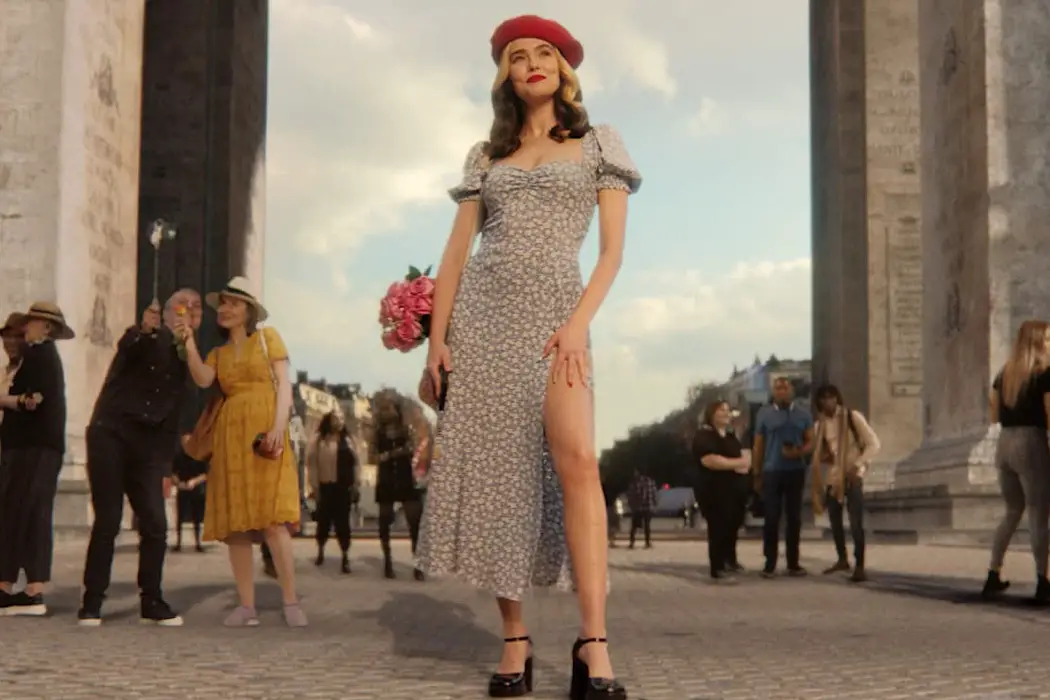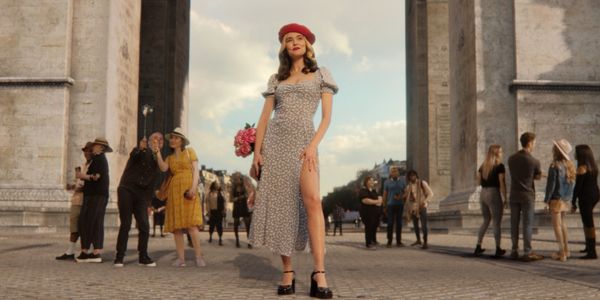NOT OKAY: None of this is Ok

Soham Gadre is a writer/filmmaker in the Washington D.C. area.…
DISCLAIMER: The author of this review did not enjoy this movie. He may say some negative things about this movie. Reader discretion is advised.
In the 1990s, as companies like Apple and Microsoft were beginning their battle for tech supremacy and the internet was becoming a consumer reality, there were movies (Johnny Mnemonic), books (‘Infinite Jest’), and albums (OK Computer) keenly predicted our growing obsession with digital media, the isolation it causes, and how we are giving ourselves into it completely without a thought. But even as early as 1983, David Cronenberg’s Videodrome was concerned with the synthesis of our biological selves and the screens we endlessly stare at. It proposed that we eventually will lose the reality we live in and become engulfed in the fakery of technology, thus believing it to be more important than life itself and in turn, we morph into horrific beings. Maybe this is why Disney decided to put a disclaimer at the beginning of Quinn Shephard’s film Not Okay that read “this film contains themes of trauma and an unlikeable female protagonist. Viewer discretion advised.”
The Algorithm is Talking to Itself
The experience of watching Not Okay wasn’t traumatic so much as soul-sucking. The film is about 1 hour and 45 minutes long but it took me nearly 5 hours to finish because I had to periodically pause multiple times to contemplate whether the future of movies is worth it anymore. We may have already gone too far. We may have arrived at a point we were never supposed to arrive at. We may be at the part where our self-reflection on the psychosis of media is being dictated by the media we consume. What I mean is, while Not Okay is clearly aiming to do some base-level “commentary” on the ills of social media, the attention-seeking of influencers, and the negative effects of feeling like self-worth only comes from the dopamines of likes and retweets, it is a movie that is completely commandeered by a mindset that lives and breathes online. It’s a social media algorithm talking to itself.

The protagonist, the one who’s unlikeable, is Danni (Zoey Deutch), a latte-sipping resident of Bushwick who works at a trendy publication with a WeWork style layout of total open space, a coffee and beer bar, and a variety of social cliques. There are gay/trans/non-binary co-workers who self-segregate and never talk to anyone else and go to queer bowling nights (Danni is not invited though she horribly tries to make her case by saying she kissed a girl in college once), hot influencer girls who do nothing but look at themselves in their phone cameras (Danni is not attractive enough to hang with them), and influencer “bros” who smoke weed and don’t pay attention to what anyone is saying (Danni is in love with one of them, Colin (Dylan O’Brien) but he treats her like a mannequin). Is Danni hopelessly alone because she’s unlikeable or does her isolation via obsession with being online feed into her inability to communicate any coherent thoughts with the culture at large? Her social media profile is small, and she is a terrible writer, but she craves attention. Her need goes so far as to make her plan a fake trip to Paris which she says she is sponsored to take for a writer’s workshop. During it, a terrorist attack happens in Paris and everyone thinks she was there to witness it making everyone start to treat her way better because she suffers from trauma now. She goes to therapy sessions where meets Rowan (Mia Isaac) who is a young activist who is recovering from trauma of a school shooting. She uses people’s kindness and Rowan’s friendship purely as a means of gaining clout on social media.
A Hollow Passing Glance
There is a lot that can be juiced from a premise like this even though I think the terrorist attack angle is cartoonish and distasteful and is utilized in the movie purely as a mechanical lever to propel Danni’s eventual downfall and it also fails at doing that because the central character doesn’t actually care that there was a terrorist attack, there’s no emotional value attached to the event in the film. It’s very “Screenwriting 101” in the way that rather than take the time to build any emotional heft or consider greater social implications of social media’s effect on our consumption of real-world events (the apathy, the condescension, the lying, et al), we are left with a movie that is satisfied with being a series of rote plot-points that tries to sell itself as a message to the world that clout-chasing is bad. What’s even more egregious than a lack of character density is the fact that the effect of Danni’s lies is displayed in the first scene of the movie where she’s crying and sees everyone sending her hate messages. This movie’s life lesson comes in the form of a tawdry PSA that gives its answer completely upfront – so what exactly am I watching the movie for again?

The visual components of this film are no less robotic and by the numbers than the script. They range from inert to comically mismanaged to downright insulting – there’s a scene where a homeless Black woman sits on the side of the road mugging at white people and her entire existence is used basically as a vapid tokenized nod to gentrification. The entire movie’s function seems to be to relay as much fake “awareness” of social ills and trends as possible and whiz them past you with the most affected levels of hackneyed self-awareness. There’s no humanity in any of these images, no thought put into the people who are supposed to represent the issues the movie wants to acknowledge. Like in social media, everything in Not Okay is a hollow passing glance as the movie keeps scrolling and clicking along.
Not Okay will be released for streaming on Hulu on July 29th, 2022.
Watch Not Okay
Does content like this matter to you?
Become a Member and support film journalism. Unlock access to all of Film Inquiry`s great articles. Join a community of like-minded readers who are passionate about cinema - get access to our private members Network, give back to independent filmmakers, and more.
Soham Gadre is a writer/filmmaker in the Washington D.C. area. He has written for Hyperallergic, MUBI Notebook, Popula, Vague Visages, and Bustle among others. He also works full-time for an environmental non-profit and is a screener for the Environmental Film Festival. Outside of film, he is a Chicago Bulls fan and frequenter of gastropubs.













